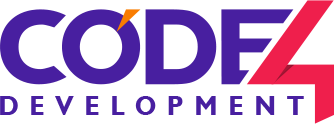Job Description
Description
Date Posted: 04/25/2025
Req ID: 42676
Faculty/Division: Faculty of Arts & Science
Department: Acceleration Consortium
Campus: St. George (Downtown Toronto)
Description:
The Acceleration Consortium (AC) at the University of Toronto (U of T) is leading a transformative shift in scientific discovery that will accelerate technology development and commercialization. The AC is a global community of academia, industry, and government that leverages the power of artificial intelligence (AI), robotics, materials sciences, and high-throughput chemistry to create self-driving laboratories (SDLs), also called materials acceleration platforms (MAPs). These autonomous labs rapidly design materials and molecules needed for a sustainable, healthy, and resilient future, with applications ranging from renewable energy and consumer electronics to drugs. AC Staff Scientists will advance the field of AI-driven autonomous discovery and develop the materials and molecules required to address society’s largest challenges, such as climate change, water pollution, and future pandemics.
The Acceleration Consortium (AC) promotes an inclusive research environment and supports the EDI priorities of the unit.
Hiring is occurring on a rolling intake. Please apply ASAP and do not wait for the listed job closing date.
The Acceleration Consortium received a $200M Canadian First Research Excellence Grant for seven years to develop self-driving labs for chemistry and materials, the largest ever grant to a Canadian University. This grant will provide the AC with seven years of funding to execute its vision.
The AC is developing seven advanced SDLs plus an AI and Automation lab:
- SDL1 – Inorganic solid-state compounds for advanced materials and energy
- SDL2 – Organic small molecules for sustainability and health
- SDL3 – Medicinal chemistry for improving small molecule drug candidates
- SDL4 – Polymers for materials science and biological applications
- SDL5 – Formulations for pharmaceuticals, consumer products, and coatings
- SDL6 – Biocompatibility with organoids / organ-on-a-chip
- SDL7 – Synthetic scale-up of materials and molecules (University of British Columbia partner lab)
- A central AI and Automation lab to support all the SDLs
This posted position is for a role with SDL2 (Organic Small Molecules)
We seek a scientist to develop ML-driven tools for accelerating organic synthesis and novel material discovery. The role involves leveraging cheminformatics and generative models to design molecules, predict reaction pathways, and optimize materials for applications in sustainability, healthcare, or energy.
Expertise that is desired: Cheminformatics and Machine Learning
- Demonstrated development or application of machine learning tools to address chemical problems, including but not limited to property prediction, reaction prediction, condition optimization, retrosynthesis, interpretable machine learning, natural language processing for data-mining and human-robot interfacing, and generative models (e.g., GANs, VAE, diffusion models) for de novo molecular design.
- Proven experience in cheminformatics pipelines using tools such as RDKit, various molecular representation and encoding methods (SMILES, SELFIES, graph-based models), QSAR, virtual screening, or molecular docking/simulations. Knowledge in quantum chemistry calculations and molecule dynamics.
Additional expertise that is desired (but not required): General Programming
- Dataset curation, database management, and data-mining skills
- Computational chemistry pipelines, and physics-informed material discovery
Additional expertise that is desired (but not required): Organic Chemistry
- Basic understanding of organic chemistry
- Collaborative experience with experimental chemists on synthetic organic chemistry or catalyst development projects.
Staff Scientists will work with a diverse team of leading experts at U of T, including Faculty Prof. Alan Aspuru-Guzik, Prof. Sophie Rousseaux, and others, as well as the broader AC team.
The Staff Scientists will work independently to develop AI and automation technologies for self-driving labs, manage SDLs, and design research programs leveraging the platforms. They will also collaborate, share knowledge, and report to the Academic Director and Executive Director of the AC.
The components and duties of the work include:
- SDL and Automation Development
Working with the AC community to determine capabilities, developing plans, designing instruments, and procuring equipment for SDLs.
- Research Direction
Developing research programs to utilize SDLs, synthesize and characterize molecules, calibrate models, and elucidate structure-property relationships. Tasks include managing projects, developing collaboration plans, supporting research proposals, and publishing research findings.
- Other Responsibilities
Providing consulting services, supporting research events such as the Annual Symposium, and other related activities.
MINIMUM QUALIFICATIONS:
Education: Ph.D. in chemistry, materials science, life sciences, physics, engineering, robotics, computer science, or related discipline.
Experience:
- 5-10 years of experience (including PhD/post-graduate) in accelerated R&D in cheminformatics and molecule design.
- Experience managing or leading major research projects involving AI, automation, hardware integration, high-throughput experimentation, and workflow development.
- Strong experience and expertise in AI and automation.
- Experience overseeing lab activities and working with industry partners.
- Proven record of research excellence and publications.
Skills:
- Proficiency in organic synthesis, analytical instrumentation, and hardware-oriented programming.
- Strong communication skills in English and ability to work collaboratively and independently.
Other:
- Strong publication record and experience in manuscript and presentation preparation.
Additional notes: All qualified candidates are encouraged to apply; priority given to Canadians and permanent residents. Closing date: 08/31/2024, 11:59 PM ET. Employee group: Research Associate. Appointment: Grant – Continuing. Schedule: Full-Time. Pay scale: $61,510 – $150,000, based on skills and experience. Job category: Administrative / Managerial.
#J-18808-Ljbffr
Company
University of Toronto
Location
Toronto
Country
Canada
Salary
100.000
URL


